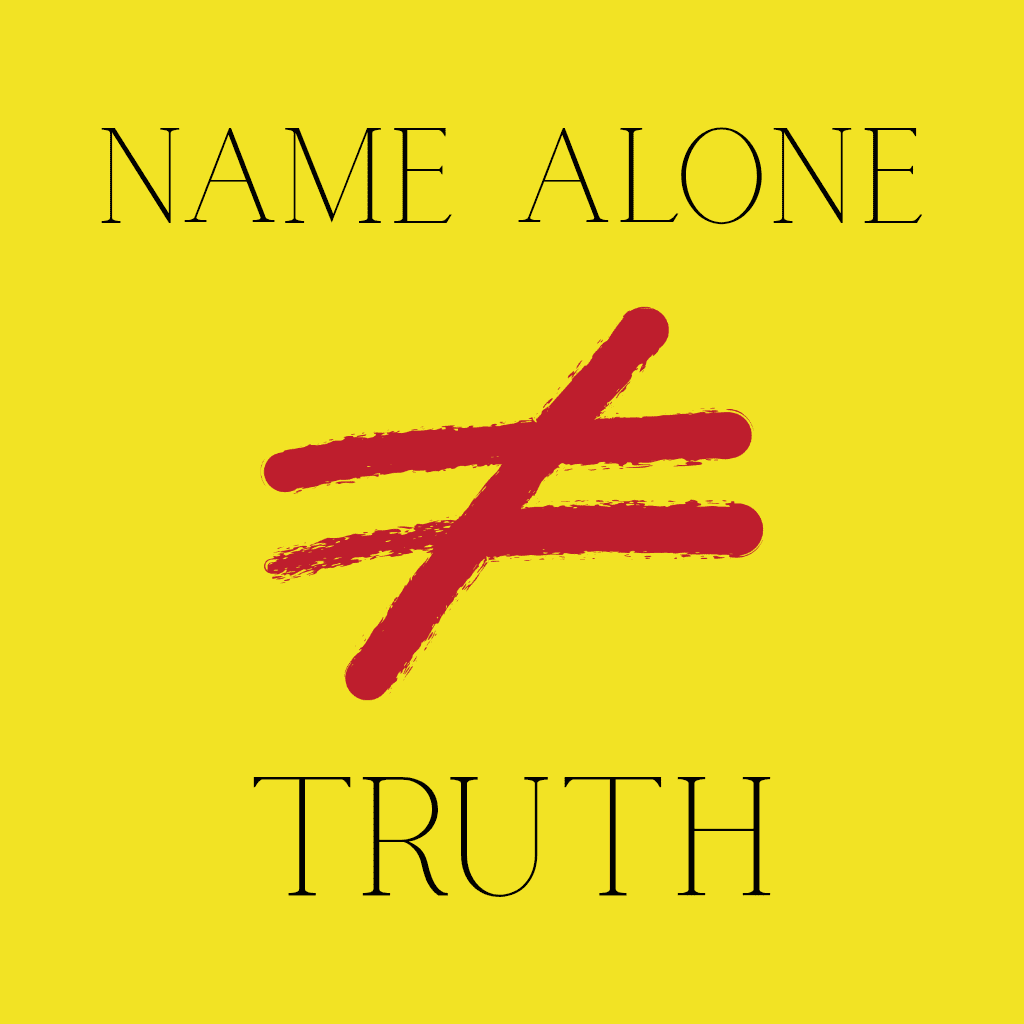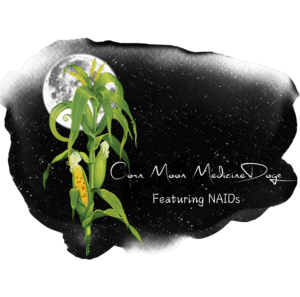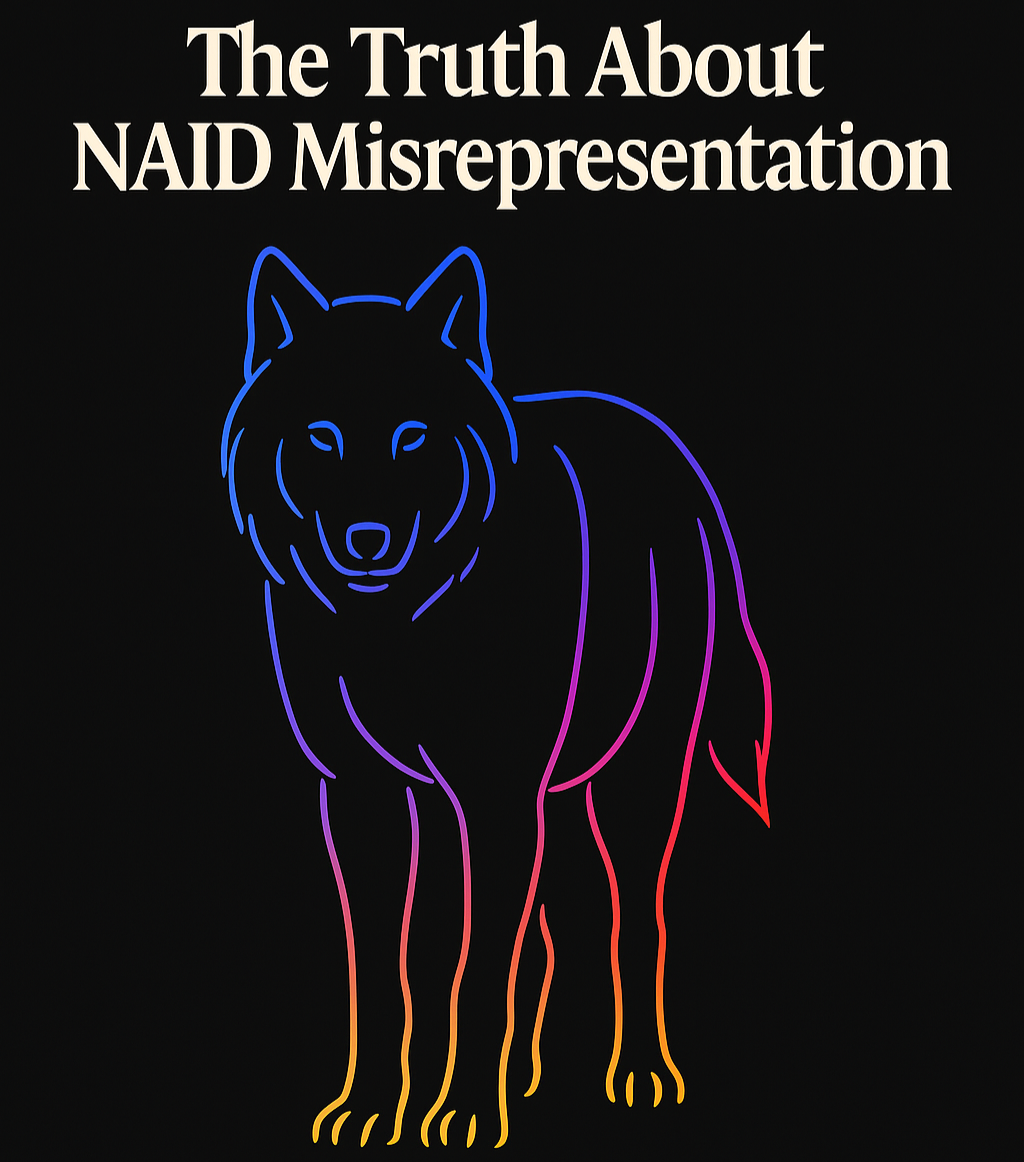In recent years, the internet has become flooded with misinformation about the Native American Indian Dog (NAID)—and much of it is coming from a surprising source: breed registries and breeders using those platforms to misrepresent crossbred dogs as NAIDs.
If you’re trying to understand whether a NAID is a wolfdog, or whether a breeder is selling you a true NAID or a crossbreed, you’re not alone—and you’re not wrong to be confused. This article exposes how registries are misused, what to look for, and how to protect both yourself and the breed.
What Is a Breed Registry?
Dog breed registries exist to provide pedigree/lineage documentation for dog breeds. Common examples include:
- The Continental Kennel Club (CKC), which also accepts wolfdogs and NorthAIDs
- All-breed registries (UABR, NAPR, CPR) that allow any dog labeled “NAID” to be registered without verification
- Private registries set up by breeders that register unverified or undocumented NAIDs
- Facebook groups or unregulated “clubs” that create their own breeding standards based on aesthetics or trends
Here’s the issue: none of these registries verify genetics, and most do not require proof of NAID ancestry. This means a breeder can register a northern breed mix as a “Native American Indian Dog”—and the registry won’t stop them.
How Registries Are Being Used to Legitimize Crossbreeding
Certain breeders, especially those mixing NAIDs with other unapproved northern breeds, mixing with low-content wolfdogs, or even producing northern breed mixes they are labeling “NAIDs,” are using these types of registries to give their dogs an air of legitimacy. They might say:
“Our dogs are registered NAIDs.”
But what they don’t tell you is:
- The registry doesn’t validate the dog’s genetic ancestry
- The dog may test positive for recent wolf content
- The registration is based only on the breeder’s word, not on data
Some even fabricate a “lineage” or use outdated paper pedigrees, while actively introducing new breeds, or even wolf content into their lines.
Why This Hurts Everyone—Including the Breed
This misuse does real damage:
- Families unknowingly adopt dogs with behaviors or needs they’re not prepared for.
- Preservation breeders are discredited, as false information circulates and makes the NAID seem unstable or dangerous.
- And worst of all, it undermines the work of those working diligently to preserve the breed as a trainable domestic companion dog.
When a dog that’s just a northern breed mix (or a NAID that has unapproved crossbreeding) is called a “NAID,” it confuses the public—and that confusion can cost dogs their homes, their legal status, or even their lives.
The NAIDPP Standard: Data Over Hype
The Native American Indian Dog Preservation Project (NAIDPP) is the only organization actively working to genetically define and preserve the true NAID.
We require:
- UC Davis Canid Hybrid Testing – to prove there’s no recent wolf content
- Ancestry Know Your Pet DNA – to confirm NAID breed identity
- Full transparency – with pedigrees, COI scores, and health testing
No other registry currently does this.
We don’t accept dogs with unverifiable backgrounds, unapproved crosses, or wolfdog content. Our mission is to protect the NAID—not to profit from its confusion.

If It’s Registered, Is It Legitimate? Not Always.
Registration alone means nothing if the registry doesn’t enforce genetic standards.
Here’s a simple guide:
| Registry | Valid for NAID | Genetic Verification Required? |
| NAIDPP | ✅ Yes | ✅ Yes |
| CKC | ❌ No | ❌ No |
| UABR | ⚠️ Yes | ❌ No |
| NKC | ⚠️ Yes | ❌ No |
| CPR | ⚠️ Yes | ❌ No |
| NABR | ⚠️ Yes | ❌ No |
| Embark Results Only | ❌ Not sufficient | ❌ Not a NAID-specific test |
| UC Davis + Know Your Pet DNA | ✅ Gold Standard | ✅ Yes |
Always ask: What test has the dog passed? Can I see the results?

How to Protect Yourself (and the Breed)
If you’re considering purchasing a NAID—or you already have one—here’s how to avoid being misled:
- Ask for DNA test results.
Insist on UC Davis hybrid testing and Ancestry Know Your Pet DNA results. If the breeder only shows Embark, ask why they don’t verify with a hybrid-specific lab. - Avoid breeders registered only through all-breed registries or private clubs.
If they don’t have verifiable, recent genetic tests, you can’t know what you’re getting. - Check the breeder’s purpose.
Are they preserving a breed? Or producing NAID-like dogs with vague papers? - Connect with preservation programs.
Reach out to the NAIDPP to learn what defines a true NAID and how to support efforts to protect the breed.
Final Thoughts
Not all registries are created equal. Some exist to preserve breeds. Others exist to sell dogs—regardless of genetic accuracy.
If you want a real Native American Indian Dog, it’s not enough to ask if the dog is “registered.” Ask how. Ask where. And most importantly—ask what the science says.
The NAID deserves better than false labels. And so do you.

